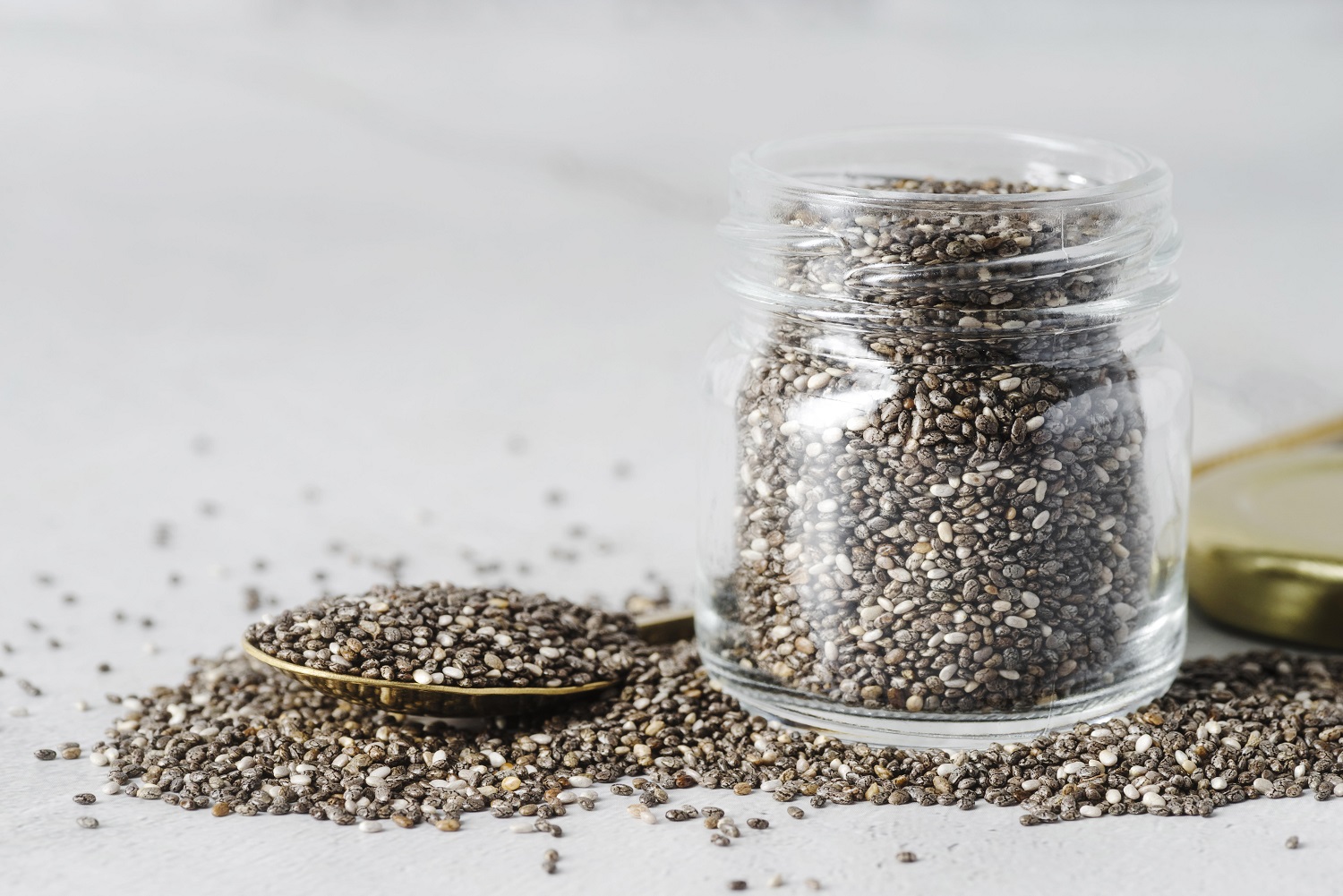
Chia seeds have taken the world by storm—and for good reason. These tiny black and white seeds pack a serious punch when it comes to nutrition. If you’re looking for a natural way to boost your immune system and improve your digestion, chia seeds might be just what your body needs.
In this blog, we’ll explore how chia seeds contribute to a stronger immune system and better gut health. Whether you’re new to the superfood trend or already using chia seeds in your meals, this guide will help you understand their real benefits and how to use them effectively.
What Are Chia Seeds?
Chia seeds are small, oval-shaped seeds that come from the Salvia hispanica plant, which is native to Central America. Traditionally consumed by ancient Aztec and Mayan civilizations, these seeds are now widely popular in health-conscious diets around the world.
Nutritional Highlights of Chia Seeds
- Rich in omega-3 fatty acids
- High in dietary fiber
- Excellent source of plant-based protein
- Packed with antioxidants
- Contains important minerals like zinc, magnesium, and calcium
These nutrients make chia seeds a great choice for those looking to improve overall health, especially when it comes to immunity and gut function.
How Chia Seeds Support the Immune System
A strong immune system is essential for fighting off infections and staying healthy. Here’s how chia seeds help:
1. Antioxidants Fight Free Radicals
Chia seeds are rich in antioxidants that help neutralize free radicals in the body. Free radicals are unstable molecules that can damage cells, and antioxidants help protect the immune cells from this damage.
2. Omega-3s Reduce Inflammation
The omega-3 fatty acids in chia seeds—especially alpha-linolenic acid (ALA)—help reduce inflammation in the body. Chronic inflammation can weaken the immune system, so eating anti-inflammatory foods like chia seeds can help keep it strong.
3. Zinc and Magnesium Support Immune Function
Both zinc and magnesium are crucial for immune health. Zinc helps immune cells function properly, while magnesium plays a role in more than 300 enzymatic reactions, many of which are related to immune defense.
4. Plant-Based Protein for Cell Repair
Protein is essential for building and repairing tissues, including immune cells. Chia seeds offer a complete protein source, meaning they contain all nine essential amino acids.
Quick Tip: For an easy immune-boosting snack, add a spoonful of chia seeds to your yogurt or smoothie.
Chia Seeds and Gut Health: A Fiber Powerhouse
Gut health is a growing concern in modern diets. An unhealthy gut can lead to a weakened immune system, digestive issues, and fatigue. Fortunately, chia seeds can play a significant role in improving gut health.
1. High in Soluble Fiber
Chia seeds contain a high amount of soluble fiber, which absorbs water and forms a gel-like consistency in your stomach. This slows down digestion and helps keep you full longer.
2. Promotes Regular Bowel Movements
The fiber in chia seeds helps prevent constipation and promotes regularity. A clean, functioning gut is better equipped to absorb nutrients and support overall health.
3. Acts as a Prebiotic
Prebiotics are compounds that feed the good bacteria in your gut. By supporting the growth of healthy bacteria, chia seeds help maintain a balanced gut microbiome, which is closely linked to strong immunity.
4. Soothing for Gut Inflammation
Because of their gel-forming nature, soaked chia seeds can be gentle on the digestive tract, especially helpful for people with sensitive stomachs or mild gastrointestinal issues.
The Gut-Immune Connection
You may have heard that “your immune system lives in your gut.” It’s true—up to 70% of the immune system is located in the gut. A healthy gut helps:
- Block harmful pathogens
- Absorb nutrients effectively
- Regulate immune responses
Chia seeds, with their gut-friendly fiber and anti-inflammatory benefits, can help keep this system functioning properly.
How to Incorporate Chia Seeds into Your Diet
The good news is that chia seeds are incredibly versatile. Here are some simple and delicious ways to add them to your daily meals:
Easy Ways to Eat Chia Seeds
- Chia water: Soak a tablespoon in a glass of water with lemon and drink on an empty stomach.
- Chia pudding: Soak seeds in almond milk or coconut milk overnight, add honey and fruits.
- Smoothies: Blend a spoonful into your favorite smoothie.
- Baked goods: Add to muffins, bread, or energy bars.
- Sprinkle: Use chia seeds as a topping for oatmeal, cereal, or salads.
Recommended Dosage: Start with 1 tablespoon (around 10–12 grams) per day and increase gradually. Always drink plenty of water to avoid digestive discomfort.
Precautions to Keep in Mind
While chia seeds are safe for most people, it’s important to consume them the right way:
- Always soak them first to avoid choking risk
- Start with small amounts if you’re not used to high fiber
- Consult your doctor if you have gut-related conditions or allergies
Conclusion
Chia seeds may be small, but they offer powerful benefits for both the immune system and gut health. Rich in fiber, antioxidants, omega-3s, and essential minerals, they support the body’s natural defense system while keeping the digestive system running smoothly.
Whether you’re looking to strengthen your immune response or improve digestion, adding chia seeds to your diet is a simple and effective choice. If you’re searching for Pure Chia Seeds or want to buy Chia Seeds in Pakistan, make sure to choose a reputable source that offers high-quality, organic products.
Stay healthy, stay nourished—and let chia seeds do their magic!